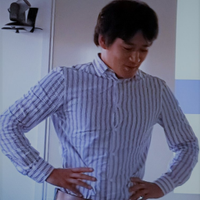
Shin Asayama
@ShinAsayama
I'm not a geographer but I'd like to think like geographers. Ambivalence & ambiguity is my intellectual gravity. A researcher @NIES_JP. Views my own.
ID:1607557356
https://researchmap.jp/shinichiro.asayama/?lang=en 20-07-2013 06:14:20
1,6K Tweets
416 Followers
569 Following


'The interesting thing is that humans have a hard time coming to terms with the fact that 2,400 Gt of carbon might make a difference to climate, but very readily get behind the idea of a few hygroscopic flares making 18 months worth of rain fall in a day.'theconversation.com/dont-blame-dub…






'[R]educing glacier melt rates only slows down the process. It doesn’t stop the sea level from rising ... [R]eversing the sea-level contribution would ... require nearly two centuries of increased snowfall to build up the mass of ice that has been lost.'
theconversation.com/why-artificial…


'consensus decision-making has led to slower, more incremental progress ... it raises questions about the efficacy of consensus driven decision-making, and whether a “last resort” voting rule should be adopted for the climate change regime.' Carbon Brief
carbonbrief.org/guest-post-the…

.David Keith: “The experiment became this proxy for a kind of debate about whether solar geoengineering research should move forward ... that’s ... the ultimate reason why [we] decided to pull the plug. There’s no way ... it made sense to move forward.”
technologyreview.com/2024/04/04/109…


'The geologists’ rejection of the Anthropocene is understandable in their need for scientific evidence. It may seem to be a missed opportunity, but it does not really matter because how we live in ... the world does not depend on a signal in the geology.'
theconversation.com/the-anthropoce…



